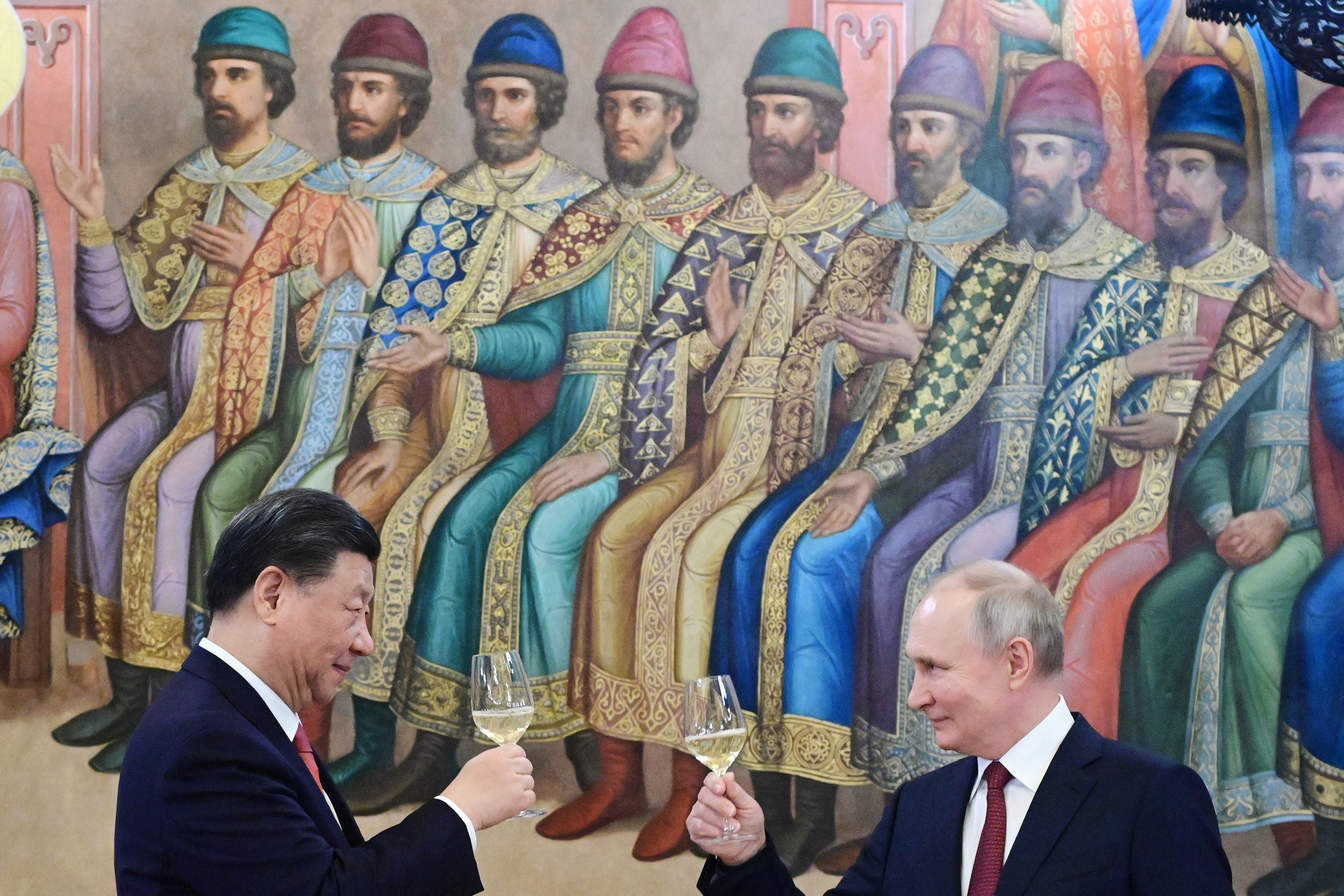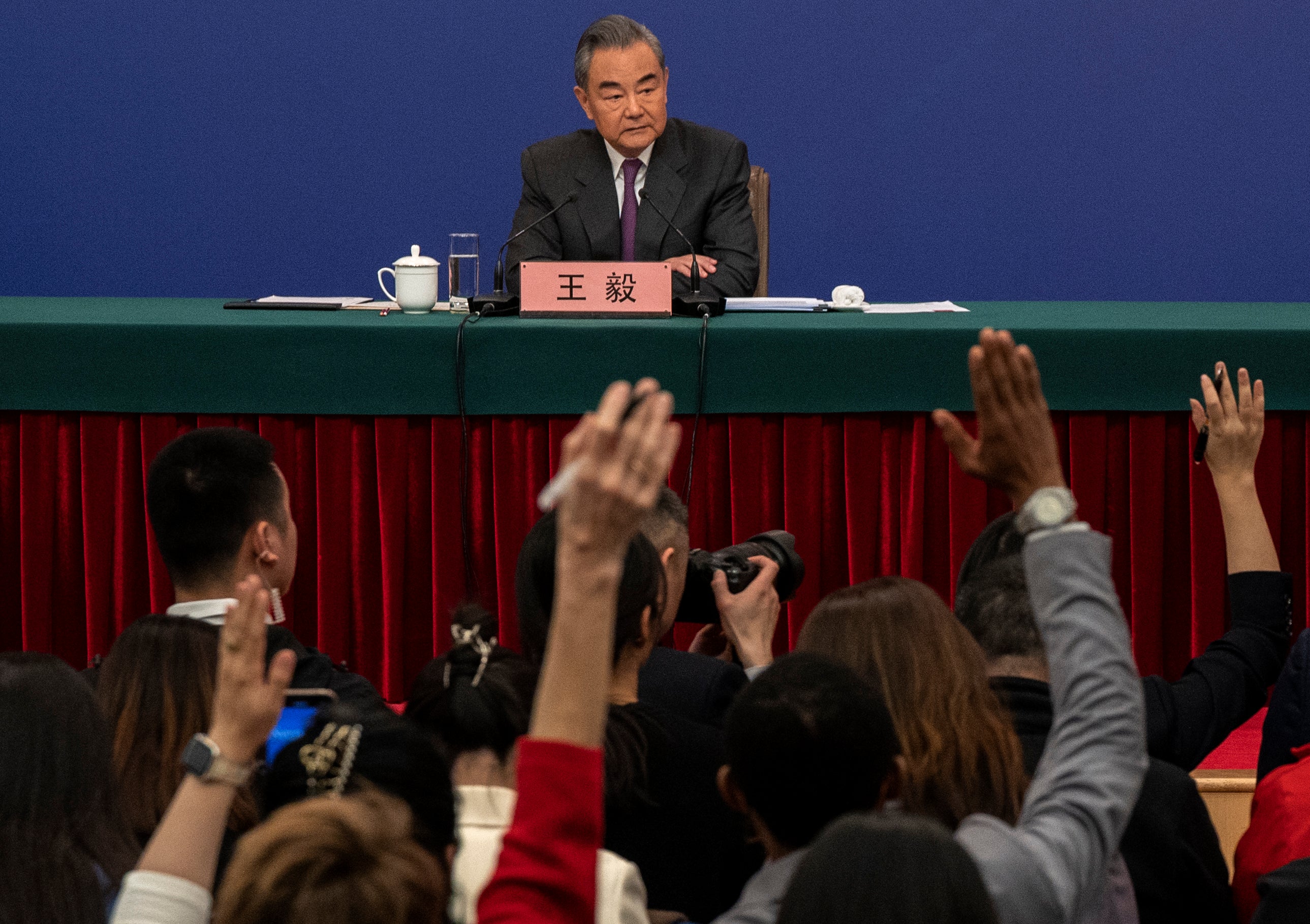Japan sounds alarm over closer military ties between China and Russia
Tokyo vows to ‘keep a close eye on development in Sino-Russian relations’
Your support helps us to tell the story
From reproductive rights to climate change to Big Tech, The Independent is on the ground when the story is developing. Whether it's investigating the financials of Elon Musk's pro-Trump PAC or producing our latest documentary, 'The A Word', which shines a light on the American women fighting for reproductive rights, we know how important it is to parse out the facts from the messaging.
At such a critical moment in US history, we need reporters on the ground. Your donation allows us to keep sending journalists to speak to both sides of the story.
The Independent is trusted by Americans across the entire political spectrum. And unlike many other quality news outlets, we choose not to lock Americans out of our reporting and analysis with paywalls. We believe quality journalism should be available to everyone, paid for by those who can afford it.
Your support makes all the difference.Japan is gravely concerned about closer military ties between China and Russia which could have wide-ranging implications for Tokyo as well as for the region, a top government spokesperson said.
"Our country intends to keep a close eye on development in Sino-Russian relations," chief cabinet secretary Yoshimasa Hayashi said at a press conference, according to Reuters.
It came as China boosted its military expenditure for 2024 by 7.2 per cent, marking the biggest jump in five years. The Asian giant’s defence budget would rise to 1.67tn yuan (£181.7bn).
On Tuesday, China’s foreign minister Wang Yi pledged closer ties with Russia while warning that a conflict between China and the US would have “unimaginable consequences”.
Mr Wang, who fielded dozens of media questions during the annual meeting of China‘s legislature, praised the country’s strengthened links with Russia with deepening trust and fresh opportunities ahead.
But he said that the closer ties were “not targeted at any party”.
He hailed the “strategic guidance” of China’s President Xi Jinping and Russia’s Vladimir Putin for pushing their trade ties to a point where bilateral trade hit a record $240bn (£188bn) last year.

The top Chinese diplomat also highlighted that Russian natural gas was fuelling Chinese households and at the same time Chinese cars were driving on Russian roads.
China and Russia declared their growing “no limits” partnership in February 2022 shortly before Russia invaded Ukraine and Beijing frustrated the US and allies with its diplomatic and economic support to the Kremlin at a time when the West was trying to pressure Moscow with sanctions.
“The China-Russia relationship moves ahead along the trend of multipolarity,” Wang said on Thursday, a phase in the world which Beijing says will no longer be dominated by American hegemony.
Mr Wang accused the US of employing tactics to suppress China’s rise and criticized the Biden administration for imposing sanctions on more Chinese companies at a “bewildering” and “unfathomable” level.

"If the US always says one thing and does another, where is its credibility as a major power? If the US gets nervous and anxious when it hears the word ‘China,’ where is its confidence as a major power?" he said. "If the US is obsessed with suppressing China, it will eventually harm itself."
He acknowledged that the relations between the two powers have thawed since the meeting between president Xi Jinping and his counterpart Joe Biden in California last year. He, however, complained that America has not fulfilled its promises.
Mr Wang, without naming any country, warned that those supporting Taiwan in its efforts to seek independence from mainland China will “get burned for playing with fire”.
The self-governing island has emerged as a major flashpoint between the US and Beijing. China claims Taiwan as its part and has vowed to bring it back under its control even if it means using force.
He accused the US, without mentioning it by name, of stirring up trouble in Taiwan and the South China Sea.
"For unreasonable provocations, we will take just countermeasures," Mr Wang said. "We also advise certain countries outside the region not to stir up trouble, choose sides, and not to become disruptors and troublemakers in the South China Sea."
Join our commenting forum
Join thought-provoking conversations, follow other Independent readers and see their replies
0Comments